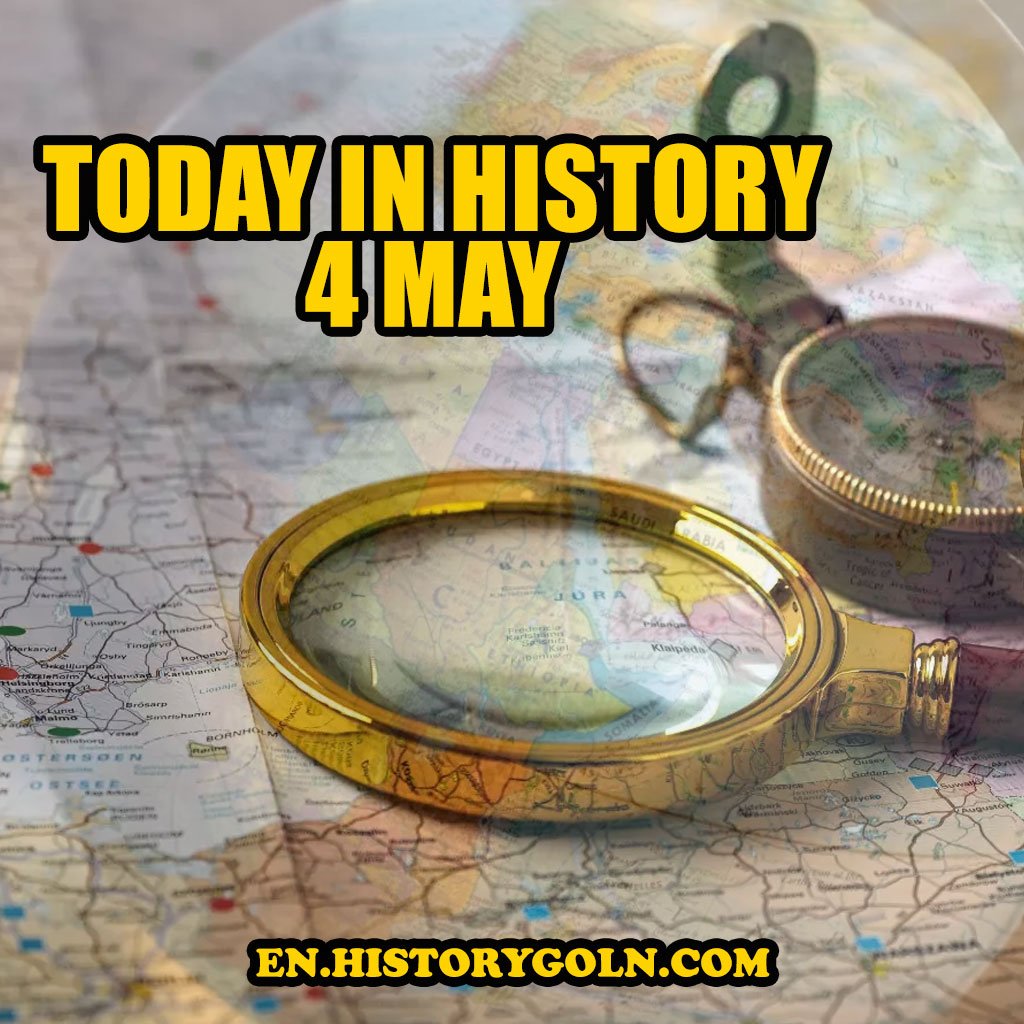The tapestry of history is woven with moments of brilliance, upheaval, progression, and tragedy. On 4 May, like every other day, significant events etched their mark on the sands of time. Let’s traverse through some of these pivotal moments that occurred on this day.
Today in History: 4 May

1471: The Battle of Tewkesbury
The Wars of the Roses, a series of civil wars for the English throne, reached a critical juncture at the Battle of Tewkesbury. The Yorkists, led by Edward IV, defeated the Lancastrian forces, cementing Edward’s claim to the throne. The death of Prince Edward, heir to the Lancastrian claim, was a significant blow to their cause.
1493: Pope Alexander VI Divides the New World
Pope Alexander VI issued the Bull ‘Inter caetera’, dividing the New World between Spain and Portugal. This edict was instrumental in the European colonization of the Americas, giving Spain the majority claim, while Portugal received territories in modern-day Brazil.
1626: Peter Minuit Buys Manhattan
In a transaction that has since become legendary, Peter Minuit, a Dutch colonizer, purportedly bought Manhattan Island from the native Lenape people for trade goods valued at 60 Dutch guilders. This would become the foundation of New Amsterdam, which would eventually be renamed New York after the English took control.
1776: Rhode Island Declares Independence
While the United States as a whole declared independence from Britain in July of the same year, Rhode Island took the initiative on 4 May, becoming the first of the Thirteen Colonies to renounce allegiance to King George III.
1886: The Haymarket Affair
In Chicago, a peaceful rally in support of workers striking for an eight-hour workday turned deadly when a bomb was thrown at the police, leading to the death of several police officers and civilians. This event is significant in labor history and is a precursor to the establishment of May Day as an international workers’ holiday.
1942: The Battle of the Coral Sea
During World War II, from 4-8 May, the Battle of the Coral Sea was fought between Japanese and Allied naval forces. While it was a tactical victory for the Japanese in terms of ships sunk, it was a strategic victory for the Allies, marking the first time the Japanese advance had been checked.
1970: Kent State Shootings
In a tragic episode in the history of American protests, the Ohio National Guard fired on students during an anti-Vietnam War rally at Kent State University, killing four and wounding nine others. This event amplified U.S. domestic opposition to the Vietnam War.
1979: Margaret Thatcher Becomes UK’s First Female Prime Minister
Margaret Thatcher, leader of the Conservative Party, made history when she was appointed Britain’s first female Prime Minister. Her policies and political style would earn her the nickname “The Iron Lady”, and she would go on to be one of the most influential figures in British politics.
1998: A Landmark Legal Case in Digital History
In the realm of digital technology and copyright, the U.S. Department of Justice filed an antitrust case against Microsoft, alleging it used monopolistic practices. The case, which would eventually lead to the breakup proposal of the company (though it was later reversed), set a precedent for how tech giants are viewed and regulated in terms of monopoly and market domination.
2000: Ken Livingstone Becomes First Mayor of London
London, having been without its own dedicated governing body since the abolition of the Greater London Council in 1986, elected its first mayor. Ken Livingstone, who had been a notable figure during his time as the leader of the GLC, became the first person to hold the post, influencing London’s transformation in the 21st century.
Reflections:
The array of events on 4 May underscores the diversity and complexity of human history. Each event, regardless of its scale, had repercussions that shaped the world in various ways.
The Battle of Tewkesbury, for instance, wasn’t merely a military confrontation, but a clash of dynasties and ambitions. It shaped the political landscape of England and influenced the future reigns. Similarly, the purchase of Manhattan wasn’t just a land acquisition but the seed of a city that would become a global epicentre of culture, finance, and diplomacy.
The Kent State Shootings and the Haymarket Affair are grim reminders of the lengths to which establishments might go to suppress dissent and the profound sacrifices individuals make in the pursuit of justice and change. Conversely, moments like the election of Margaret Thatcher showcase the breaking of glass ceilings, setting new precedents in leadership.
Each of these events, in its unique way, has lessons for contemporary society. They remind us of our collective past, the challenges we’ve overcome, the mistakes we’ve made, and the milestones we’ve achieved. Understanding these intricacies of May 4th and reflecting upon them isn’t just an academic exercise, but a journey into the depths of human civilization, ambition, conflict, and progress.
